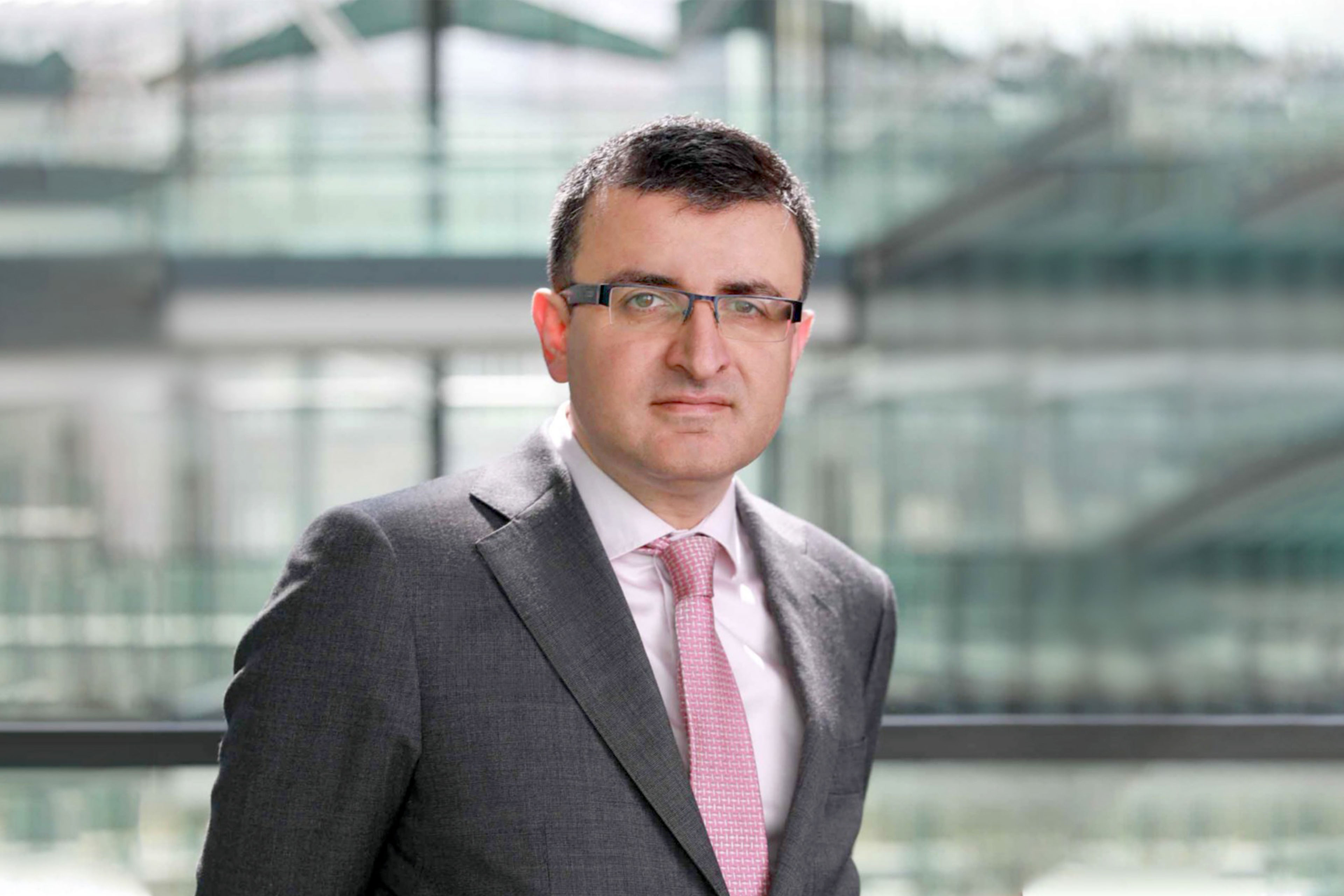EY refers to the global organization, and may refer to one or more, of the member firms of Ernst & Young Global Limited, each of which is a separate legal entity. Ernst & Young Global Limited, a UK company limited by guarantee, does not provide services to clients.
Financial controllers switching gears to proactively drive growth as big changes beckon for future role
- Inaugural EY DNA of the Financial Controller Report shows 86% of financial controllers expect role to change drastically over next five years
- Huge potential to shape Financial Controller role: 39% expect focus to shift to “value creation” but many not getting support needed to make this change
- Twenty-six percent expect future role to demand very different or “unknown” skills
Financial controllers in organizations around the world are braced for radical change in their roles over the next five years, opening big opportunities for those who can embrace data and technology. However, many are uncertain about what this change will involve, and many are not getting the support they need to manage it, according to the EY DNA of the Financial Controller Report, 2024.
The survey canvasses the views of more than 1,000 financial controllers across 28 countries and territories. It reveals that almost 9 in 10 (86%) financial controllers expect their roles to change dramatically by 2030, with 39% anticipating a heightened focus on value creation – actively supporting business growth – a departure from the traditional strongholds of value protection and optimization.
Unknown skills
More than a quarter (26%) of financial controllers surveyed expect their roles to demand completely different – and perhaps even “unknown” – skills by the end of the decade. Just 14% say their future role will be similar to today’s.
Myles Corson, EY Global and EY Americas Strategy and Markets Leader, Financial Accounting Advisory Services, says:
“The role of the financial controller is on the cusp of significant change, and while it is not clear exactly how this will play out, it is evident that financial controllers must now deliver at a high level on multiple challenges at once. They need to strike a balance between delivering short-term performance and enabling long-term value, and their responsibilities now stretch far beyond the balance sheet.
“With the right level of support, however, there is a huge opportunity to shape the role and transform the function so that it can look to the future with confidence.”
The survey shows that many financial controllers have positioned themselves well for the imminent changes to their roles. They are ahead of most finance leaders in relation to the growth of artificial intelligence (AI), with 67% already using the technology for daily tasks. In addition, most financial controllers (88%) are using data to provide strategic insights – something that AI will only serve to improve.
However, many are not getting the support they say they need to help them become value creators. One in 10 (10%) say they do not have the necessary staff and a fifth (20%) report that they lack the required budgets.
In addition, financial controllers are not universally focused on the areas necessary for future development. Just two-fifths (43%) say innovation should be a critical aspect of the role, putting them at odds with more senior leadership – 51% of whom say it is important.
Harnessing technology
Although there is clear recognition that the role of the financial controller is in flux, and despite the adoption of data insights and AI, the survey also suggests that more support may be needed to fully harness the power of emerging technology. Only 21% of those who took part in the survey ranked searching for opportunities to use technology as one of the top three ways of creating value, while 73% cited driving company growth – suggesting that many are overlooking the capacity of technology to fuel growth.
Even though many financial controllers see value creation as the future focus of their role, for now, a large proportion remain focused mainly on value optimization, such as cost-saving strategies (46%), rather than on seeking out opportunities for growth.
However, the survey did identify a set of financial controllers (25% of the overall sample), known as “confident controllers,” who are already driving value creation through technology. Nearly two-fifths of this group (37%) lead on innovation, compared to 25% of other controllers surveyed.
Emerging talent gap
The survey also points to a potential talent shortage at the top of the profession over the coming years, mirroring an industry-wide lack of qualified professionals, with just a third (32%) of confident controllers saying they want to become chief financial officer (CFOs).
Interestingly, those with ambitions for the CFO role are often less convinced about the importance of some business areas than controllers who want to remain in the role – for example, 73% of controllers who want to stay in their positions say innovation matters, compared to just 51% of those who aspire to be CFOs.
Corson says, “The first step in any successful transformation is building recognition of the need for change. While it is clear this exists within most finance functions, financial controllers need to actively lead in developing the technological skills and knowledge needed to unlock their value-creating potential and enhance the brand of controllership with their leaders.
“The divergence between ‘confident controllers’ and their peers when it comes to innovation, particularly their use of tech and data, is stark. These leaders provide the ideal model for less seasoned controllers to work toward in terms of skills and focus, and with the right support and approach, they can show how the role of the financial controller can be a force for true value creation and innovation.”
To read more, visit: DNA Financial Controller Survey.
-ends-
Notes to editors
About EY
EY exists to build a better working world, helping to create long-term value for clients, people and society and build trust in the capital markets.
Enabled by data and technology, diverse EY teams in over 150 countries provide trust through assurance and help clients grow, transform and operate.
Working across assurance, consulting, law, strategy, tax and transactions, EY teams ask better questions to find new answers for the complex issues facing our world today.
EY refers to the global organization, and may refer to one or more, of the member firms of Ernst & Young Global Limited, each of which is a separate legal entity. Ernst & Young Global Limited, a UK company limited by guarantee, does not provide services to clients. Information about how EY collects and uses personal data and a description of the rights individuals have under data protection legislation are available via ey.com/privacy. EY member firms do not practice law where prohibited by local laws. For more information about our organization, please visit ey.com.
This news release has been issued by EYGM Limited, a member of the global EY organization that also does not provide any services to clients.
About the survey
This survey was conducted online in May and June 2024. Responses were collected from 840 financial controllers including 280 group financial controllers, 280 divisional financial controllers, and 280 regional financial controllers. Additionally, responses from 280 senior finance leaders – including CFOs – were collected to understand their view of the financial controller’s role. Respondents are from 28 countries – 46% from the Americas, 36% from EMEIA, and 18% from Asia Pacific – and 19 industry segments. To participate in the survey, respondents were required to work for organizations with $1b or more in annual revenue. In addition, 14 in-depth qualitative interviews were conducted with financial controllers from global organizations and EY subject matter professionals.
Related news
Global IPO divergence widens as Americas and EMEIA surge and Asia-Pacific slows
LONDON, 27 JUNE 2024. Globally, in the first half (H1) of 2024 there were 551 listings raising US$52.2b in capital, a 12% decrease in the number of IPOs and a 16% drop in proceeds raised year-on-year (YOY).
LONDON, 19 June 2024. The global automotive industry is on the cusp of a $660b revenue opportunity, as it shifts its focus away from internal combustion engine (ICE) vehicles to electric vehicles (EVs), according to new EY analysis.
EY announces 9 key recommendations to boost investment and make Europe more competitive
LONDON, 19 JUNE 2024. The EY organization is calling on European institutions and national governments to take nine actions to help attract more foreign direct investment (FDI), with the publication of the second installment of its Europe Attractiveness Survey 2024.
Record energy investments are failing to keep the world on track for the 2030 renewables target
LONDON, 18 JUNE. Despite last year’s surge of US$1.8 trillion in clean energy investment, including US$660 billion earmarked for renewables, investment remains below what is needed to meet the COP28 target of tripling renewable capacity by 2030.
LONDON, June 18, 2024 — The EY organization today announces a significant milestone in the launch of Microsoft Dynamics 365 Sales for EY people across the globe, paving the way for how global professional services organizations establish more unified, customer-focused sales operations.
LONDON, Monday 17 June 2024: The majority (82%) of European financial services firms' boardrooms include at least one director with experience of either a ministerial or parliamentary position or a civil service or government-appointed role, providing crucial expertise amid the 2024 election super cycle, according to the latest EY European Financial Services Boardroom Monitor.









